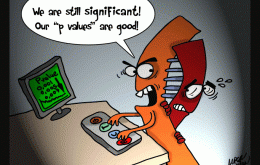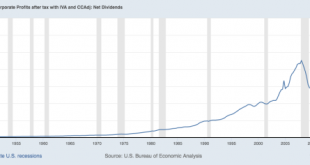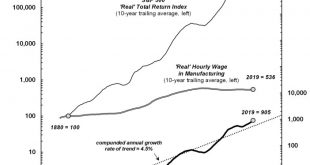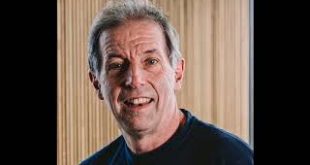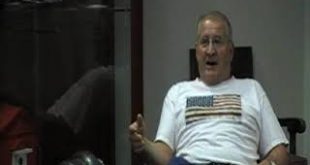from Dean Baker The New York Times had a piece about a new law in China that reduced penalties for importing drugs that have not been approved by China’s regulatory agency. While it is not clear from the piece how far-reaching this change in the law will be in practice, the potential impact for both China and the world is enormous. India has continued to be a massive supplier of generic drugs, both to its own people, but also to the rest of the world. Many drugs that are subject to patent...
Read More »What — if anything — do p-values test?
from Lars Syll Unless enforced by study design and execution, statistical assumptions usually have no external justification; they may even be quite implausible. As result, one often sees attempts to justify specific assumptions with statistical tests, in the belief that a high p-value or ‘‘nonsignificance’’ licenses the assumption and a low p-value refutes it. Such focused testing is based on a meta-assumption that every other assumption used to derive the p-value is correct, which is a...
Read More »Talk is cheap
from David Ruccio The same day I wrote that capitalism was coming apart at the seams, indicated by the shocking disparity between the compensation of corporate CEOs and workers, the Business Roundtable published its new statement of purpose of a corporation.* The 180 or so corporate executives who signed the statement declared that all their stakeholders, not just owners of equity shares, were important to their mission. Many business pundits, such as Andrew Ross Sorkin, greeted the new...
Read More »Capitalists contra workers
from Shimshon Bichler and Jonathan Nitzan Over the past 139 years, the total return on U.S. equities (capital appreciation plus reinvested dividends) grew 905 times faster than the manufacturing wage rate.
Read More »Dean Baker teach me how to setup CNC Mori Seiki
Dean Baker teach me how to setup CNC Mori Seiki
Brazil, the Amazon, and Global Warming: It ain’t quite what the media tell you
from Dean Baker Brazil has gotten a huge amount of bad press with the fires in the Amazon with the emphasis on the harm its development policies are doing to efforts to limit global warming. While the policies of Brazil’s right-wing president, Jair Bolsonaro, are disastrous, there is an important part of the story that is being left out of most discussions. The reason that we are worried about global warming is because rich countries, most importantly the United States, have been spewing...
Read More »Mr Eddie Dean Baker
Mr Eddie Dean Baker
Read More »Mr Eddie Dean Baker
Mr Eddie Dean Baker
Read More »Dean Baker Live Stream
Support the stream: https://streamlabs.com/deanbaker1
Read More » Real-World Economics Review
Real-World Economics Review

